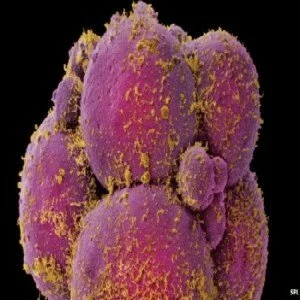Modifying the DNA of embryos is a “line that should not be crossed”, a leading figure in US research says. Dr Francis Collins, National Institutes of Health director, was responding to reports that the first embryos had been modified in China.
He argued there were “serious and unquantifiable safety issues”, big ethical questions and no compelling medical reason to do it. He said the NIH would not fund such research in the US.
The advent of “Crispr technology” – which is a more precise way of editing DNA than anything that has come before – has spurred huge progress in genetics. But there had been growing concern these tremendous advances were making the modification of human embryos more likely. Dr Tony Perry, a pioneer in cloning, told the BBC News website in January that designer babies were no longer “HG Wells” territory. Concerns were also raised in the journal Nature as rumours circulated that it had already taken place.
Last week a team at Sun Yat-sen University, in Guangzhou, reported using Crispr to modify defective parts of DNA that lead to a blood disorder called beta thalassaemia. Their world first, reported in the journal Protein and Cell, showed the correction was successful in seven out of 86 attempts. However, there were a number of other “off-target” mutations introduced to the genetic code.





No Comments